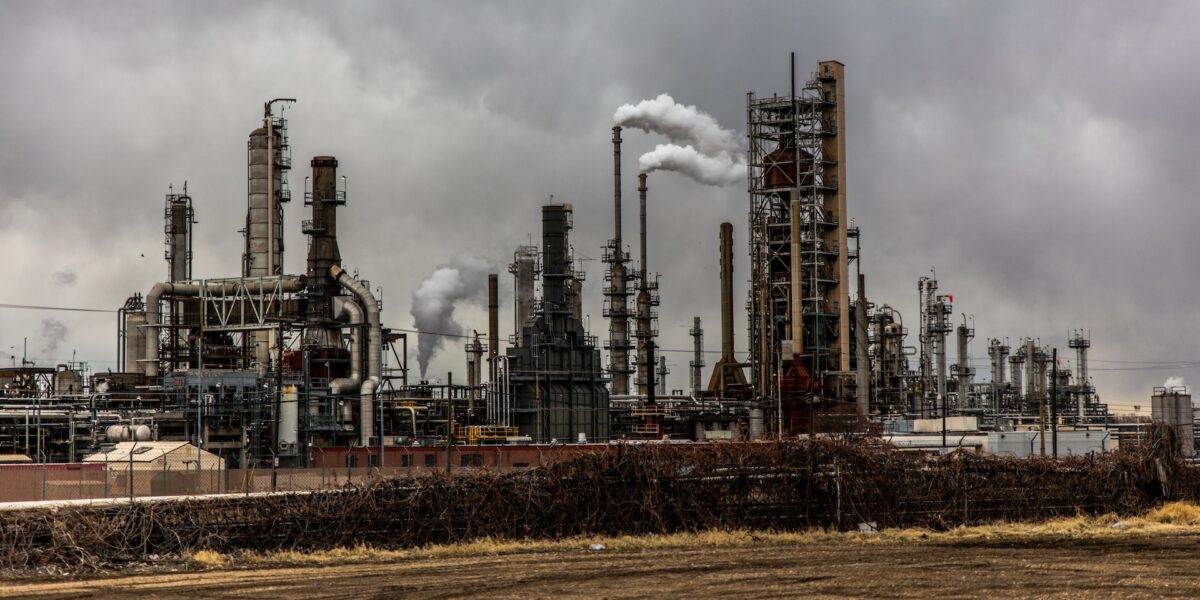Support for oil and gas projects is often justified on economic grounds: they fuel the economy and create jobs. But do those arguments hold up?
Even leaving aside the enormous costs of climate-related disasters such as flooding, drought and increasing water scarcity, and pollution-related health impacts and premature deaths, fossil fuel operations cost society more than they bring in. Owners and shareholders are raking in massive amounts of money — but at what cost to the rest of us?
Consider the Trans Mountain pipeline twinning project, which the Canadian government bought from Kinder Morgan for $4.5 billion in 2018, promising to build it for a total of $7.4 billion. As Andrew Nikiforuk points out in the Tyee, “That figure … soon ballooned to $12.6 billion in 2020. Last year it climbed to $21.4 billion. It now stands at $30.9 billion and counting.”
Most pipeline employment is during construction only. That’s a lot of money to pay for a limited number of short-term jobs. But Houston-based Kinder Morgan is doing OK — its profits are rising in step with global conflicts. And the companies poised to increase bitumen shipments from the Alberta oilsands to the coast for export should also benefit, especially with generously low fees, or “tolls,” they pay to use the pipeline.
And, as Nikiforuk writes, thanks to a deal the companies signed, “shippers will only have to pay 22 per cent of the actual cost of overruns beyond the original $7.4-billion budget,” which means “you the taxpayer, are liable, at this point, for 78 per cent of the overruns.”
Consider also the many old oil and gas wells in Alberta (and elsewhere) that continue to pollute land, water and air long after their owners have moved on — including leaking the potent greenhouse gas methane. Companies are legally required to clean up after themselves once operations are finished, but many don’t, for various reasons. Sometimes they just declare bankruptcy when they’re done, with owners moving on to new ventures, leaving farmers, ranchers and communities to live with the messes.
Now, Alberta’s government wants taxpayers to dip into their wallets for cleanup. The government has proposed a three-year pilot program that would “offer $100 million in royalty credits to companies that clean up inactive, suspended or partially abandoned wells at least 20 years old and drilled prior to 1980,” the Narwhal reports.
On top of the Alberta plan, the federal government gave the province $1 billion in cleanup grants in 2020, according to the Narwhal, much of it going to oil giants Canadian Natural Resources Limited and Cenovus. “Estimates for the total cost of cleaning up Alberta’s oil and gas liabilities range from $58 billion to as high as $260 billion.”
Those are just two of many examples of tax dollars being used to subsidize the most profitable industry in history. As it rakes in record profits, in part by capitalizing on global conflicts like Russia’s invasion of Ukraine, it continues to wreak environmental damage, from oilsands-related earthquakes to toxic tailings pond leaks to air and water pollution and life-threatening greenhouse gas emissions.
Meanwhile, those who run the companies cover up the damage, downplay or deny the climate risks and offer “greenwashing” in place of real efforts to reduce their dangerous impacts.
It makes twisted sense in an economic system that prioritizes constant growth, ever-increasing profits and maximizing shareholder return above all else. But it makes no sense in light of the overwhelming evidence that burning fossil fuels could spell humanity’s demise. As the Intergovernmental Panel on Climate Change warns in its sixth assessment report, we have very little time to shift from coal, oil and gas to cleaner energy sources, and to reduce our wasteful consumption.
The world can’t afford to build any more fossil fuel infrastructure or continue exploiting and burning these fuels — and we certainly can’t afford to subsidize them with tax dollars. Many affordable, reliable solutions are readily available — solutions that will save money and give us cleaner air, water and soil, better health, good jobs and a chance at long-term survival.
Moving away from fossil fuels will squeeze industry executives with annual multi-million-dollar compensation packages, and shareholders reaping the benefits of generous buybacks and dividends, but it will be good for everyone else.
It’s time for change!
David Suzuki is a scientist, broadcaster, author and co-founder of the David Suzuki Foundation. Written with contributions from David Suzuki Foundation Senior Writer and Editor Ian Hanington. Learn more at davidsuzuki.org.



